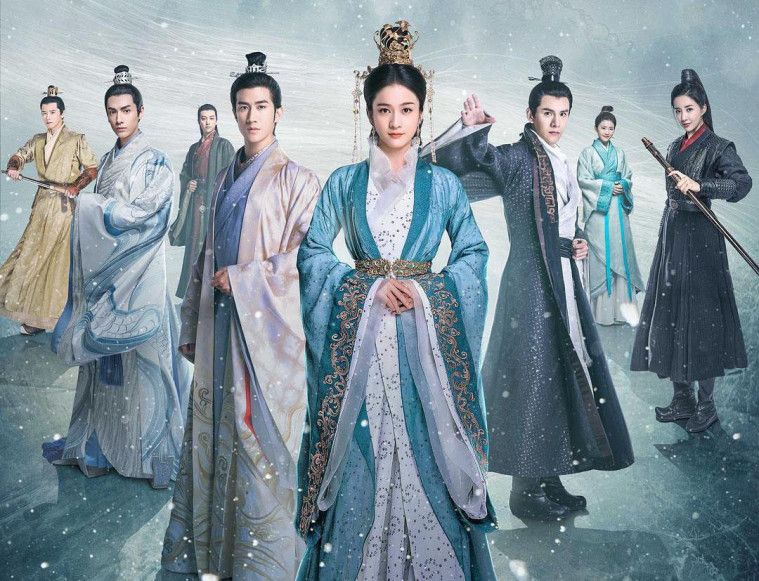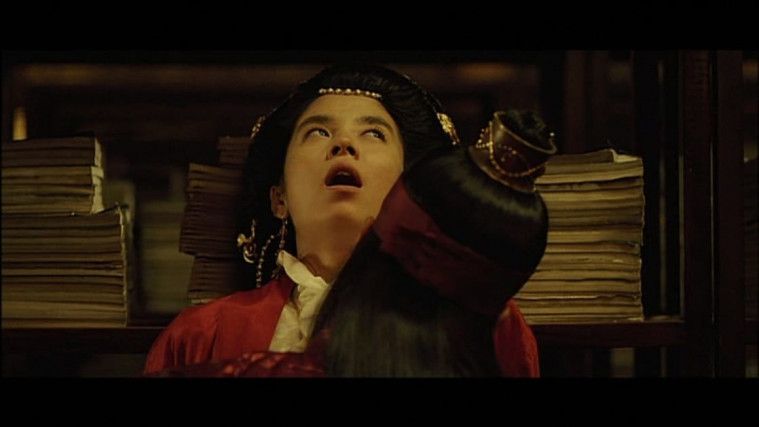

“This is the - should I say - the Oriental politeness: You don’t talk about things that may put your partner in an uneasy position,” Annaud said. Therefore, we need you.” Annaud said he was never asked to apologize for or renounce “Seven Years.” Reminding Jiang and his colleagues of China’s official reception for “Seven Years,” the director said: “Those charming people just smiled and said, well, we have changed, China has changed. But I remember saying to myself, this was something I’d love to do, but of course it’s not going to be for me,” recalled Annuad, 71, who said the book reminded him of his own sojourn in the 1960s as a young man to Cameroon, where he witnessed misguided and destructive agricultural “development” programs implemented by French agronomists. “I was aware of the novel and had read some excerpts in the French press. But when they order the local herdsmen to snatch wolf cubs from their dens and kill them, and foolishly try to introduce farming and industry to the steppe, they hardly come off as benevolent, much less intelligent, leaders.Īnnaud said he was as surprised as anyone to be approached by Jiang and a Chinese production team about adapting the book for the big screen.

Unlike in Annaud’s Tibet film, the Communist cadres in “Wolf” aren’t arrogantly stomping on Buddhist mandalas or mowing down monks with firearms. But like “Seven Years,” it is also a critique of majority Han Chinese chauvinism vis-à-vis ethnic minorities. The story, in part, is a denunciation of ecologically disastrous government “modernization” schemes. Unexpectedly approved by censors, the book, published in 2004, became a bestseller. On one hand, the wildlife drama is a natural for Annaud, who has previously made compelling stars of vicious fauna in his films “The Bear” and the tiger story “Two Brothers.”īut the bleak, semi-autobiographical novel by Jiang Rong - a democracy activist who was jailed after the Tiananmen Square massacre - is fraught with potential political tripwires. The story, set during the Cultural Revolution of the 1960s, centers on a young Beijing intellectual’s fascination with the wolves he encounters when he’s sent to teach Mandarin to minority nomadic herders in the majestic, scenic grasslands of Inner Mongolia. The movie, which has earned $32 million so far, will roll out in France next, and Sony has distribution rights in the United States and a number of other markets. Not only has he been allowed back into the country, but he has made a new film here - a $40-million, 3-D adaptation of the Chinese novel “Wolf Totem” that arrived in mainland theaters just in time for the Chinese New Year holiday last week. And to this day, Beijing continues to be extremely touchy about Tibet and the Dalai Lama (whom they regard as a separatist China even protested President Obama’s recent meeting with the exiled spiritual leader).īut somewhat surprisingly, Annaud’s Chinese exile has ended.
Film semi mandarin lama movie#
The movie so rankled Beijing that not only was the film banned in China but Annaud, Pitt and his costar, David Thewlis, were also declared personae non gratae and unwelcome to enter the country. In 1989, he was awarded the Nobel Peace Prize.”

He still lives there today, trying to promote a peaceful resolution with the Chinese. Said the next: “In 1959, the Dalai Lama was forced to flee to India.

Six thousand monasteries were destroyed,” read one. “One million Tibetans have died as a result of the Chinese occupation of Tibet. The based-on-a-true-story movie, starring Brad Pitt as an Austrian mountaineer who befriends the adolescent Dalai Lama in the years before China’s 1950 invasion of the plateau, ended with several blunt title cards: In his 1997 film “Seven Years in Tibet,” French director Jean-Jacques Annaud didn’t mince words about the Chinese Communist Party.


 0 kommentar(er)
0 kommentar(er)
